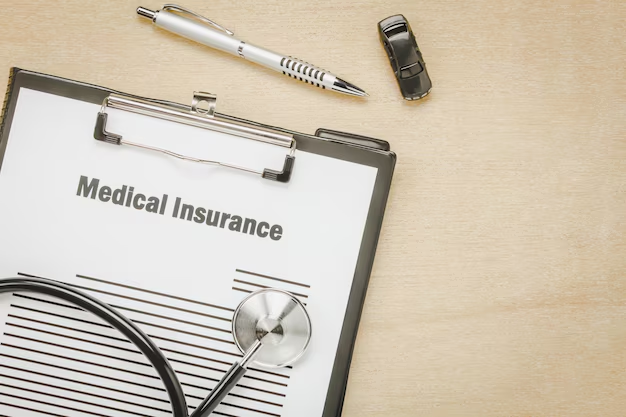Your Guide to What If Someone Gets Your Medicare Number
What You Get:
Free Guide
Free, helpful information about Medicare Insurance and related What If Someone Gets Your Medicare Number topics.
Helpful Information
Get clear and easy-to-understand details about What If Someone Gets Your Medicare Number topics and resources.
Personalized Offers
Answer a few optional questions to receive offers or information related to Medicare Insurance. The survey is optional and not required to access your free guide.
What Happens If Your Medicare Number Falls Into the Wrong Hands?
In today's digital age, personal security isn't just about safeguarding physical valuables—your Medicare number is a critical piece of information that needs protection too. If someone were to gain unauthorized access to your Medicare number, it could potentially lead to problems ranging from illegal claims to compromised personal information. Here’s what you need to know and do if you suspect your Medicare number has been misused.
Understanding the Risks
Knowing what's at stake can help you respond effectively if your Medicare number is compromised:
Fraudulent Medical Claims: Scammers can use your Medicare number to submit fake claims, causing chaos in your medical records and potentially limiting your access to genuine services when you need them.
Unauthorized Charges: Your account may incur charges for services you never received, leading to unexpected bills and potential legal issues.
Identity Theft: Although less common with Medicare numbers, identity theft can still occur, potentially affecting your financial health.
Immediate Steps to Take
If you suspect someone has access to your Medicare number, consider these immediate actions:
Contact Medicare: Immediately call the Medicare hotline to report any fraudulent activity or doubts about your account. This can prevent further unauthorized access.
Check Your Statements: Regularly review your Medicare Summary Notices and check for services or charges you didn’t receive. If you spot any discrepancies, report them promptly.
Notify Healthcare Providers: Inform your doctors and healthcare providers of the potential misuse so they can have records of legitimate services.
Long-Term Solutions
For enhanced protection and peace of mind, consider these long-term strategies:
Monitor Your Credit: Regularly check your credit reports for unusual activities. Although Medicare numbers aren’t typically used for financial credit theft, it's better to be safe.
Stay Informed with Latest Scams: Be aware of common tactics scammers use to access personal information, especially through phishing emails or fake phone calls.
Legal Protection and Advisory Services: You might find it beneficial to consult with legal advisors or services specializing in identity protection to help you navigate and respond to any issues you experience.
Expanding Your Safety Net: Additional Resources
Beyond protecting your Medicare information, expand your financial and educational safety net. Here are some resources that you might find valuable:
Government Aid Programs: Programs such as Medicaid or Supplemental Security Income (SSI) can provide financial relief if healthcare fraud impacts your finances.
Financial Assistance and Debt Relief: Consider exploring services that offer personalized financial advice or debt consolidation solutions.
Educational Grants and Scholarships: Knowledge is power; use grants and scholarships to educate yourself about financial literacy and digital security.
Credit Card Solutions: Look into credit monitoring and protection services that may assist in safeguarding your financial health.
A Handy List of Financial and Educational Resources
- 📞 Medicare Hotline: Report fraud and seek guidance.
- 🏦 Credit Monitoring Services: Stay ahead of identity theft.
- 🤝 Legal Advisory Services: Seek legal assistance if needed.
- 💳 Credit Solutions: Protect against financial fraud.
- 📚 Educational Grants: Learn about financial management.
- 🏥 Supplemental Insurance Options: Consider adding another layer of health coverage for better protection.
Securing your Medicare number isn't just about preventing fraud; it's about maintaining your peace of mind and ensuring that you can access the healthcare services you need when you need them. Stay proactive, and remember the resources available for added security and financial relief.
What You Get:
Free Medicare Insurance Guide
Free, helpful information about What If Someone Gets Your Medicare Number and related resources.

Helpful Information
Get clear, easy-to-understand details about What If Someone Gets Your Medicare Number topics.

Optional Personalized Offers
Answer a few optional questions to see offers or information related to Medicare Insurance. Participation is not required to get your free guide.


Discover More
- Am I Elgible For Medicare
- Am I Enrolled In Medicare
- Am I Qualified For Medicare
- Are Adult Diapers Covered By Medicare
- Are Chemotherapy Drugs Covered By Medicare Part d
- Are Colonoscopies Covered By Medicare
- Are Covid Tests Covered By Medicare
- Are Cpap Machines Covered By Medicare
- Are Cpap Supplies Covered By Medicare
- Are Dental Implants Covered By Medicare
